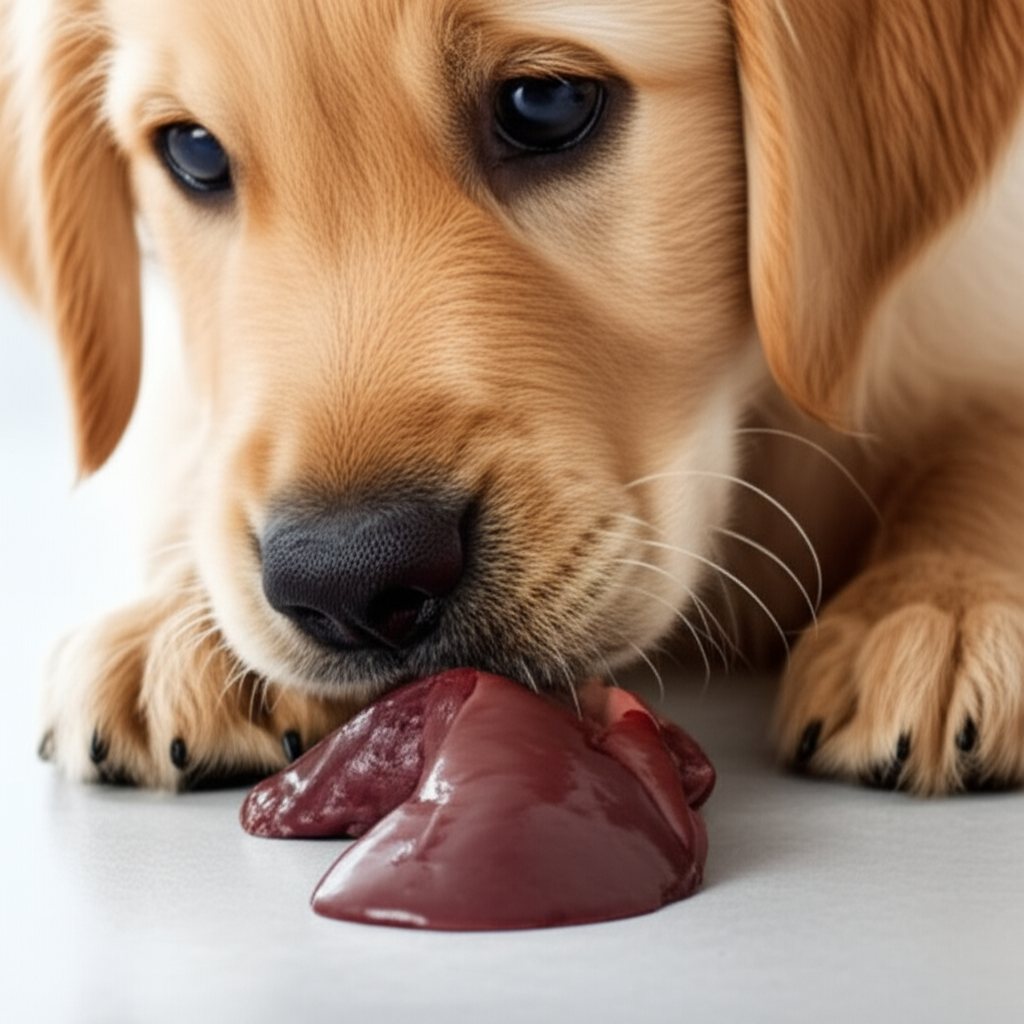- Why Are You Even Thinking About Feeding Your Dog Squirrel Liver?
- The Cold, Hard Truth: Why Squirrel Liver is Risky Business
- Parasites: Uninvited Guests in Your Dog's System
- Bacteria: A Recipe for Disaster
- Toxins: Nature's Poison Pills
- What About Cooking the Squirrel Liver? Does That Make It Safe?
- Safer Alternatives: Give Your Dog What They Deserve
- FAQ: Squirrel Liver for Dogs
- The Bottom Line
Squirrel liver is generally unsafe for dogs due to potential parasite and bacteria contamination, and the risk of poisoning from toxins the squirrel may have ingested.
Okay, let’s get straight to it. You’re probably here because you’re wondering if giving your dog squirrel liver is a good idea. Maybe your furry pal snagged a squirrel, or you’re thinking about adding it to their diet for some reason. Either way, you want to know: Is squirrel liver safe for dogs?
We’re going to break down the real deal, no sugarcoating. We’ll cover the risks, the reasons why you might be considering it, and safer alternatives.
Why Are You Even Thinking About Feeding Your Dog Squirrel Liver?
Before we dive into the dangers, let’s be real. Why are you considering feeding your dog squirrel liver anyway? It usually boils down to a few things:

The “Raw” Diet Trend: We see a lot of buzz around raw diets for dogs, suggesting they’re closer to what dogs would eat in the wild.
Nutritional Value: Organ meats, in general, are packed with vitamins and minerals. Liver is like a multivitamin in meat form.
Availability: Maybe your dog caught a squirrel, and you’re thinking, “Waste not, want not?”
Cost: Sometimes, wild game can seem like a cheaper or more accessible protein source.
These are valid reasons, but are they worth the risk? Let’s find out.
The Cold, Hard Truth: Why Squirrel Liver is Risky Business
Squirrel liver – while nutritionally dense – is not without its problems.
Parasites: Uninvited Guests in Your Dog’s System
Imagine this: a squirrel merrily hopping around, ingesting all sorts of things. Now imagine those things, like parasites, making their way into your dog. Not a pretty picture, right? Squirrels can carry parasites like:
Roundworms
Tapeworms
Coccidia
These little hitchhikers can cause serious digestive issues, weight loss, and a whole lot of discomfort for your dog.
Bacteria: A Recipe for Disaster
Raw meat is notorious for harboring bacteria like Salmonella and E. coli. These bacteria can lead to:
Vomiting
Diarrhea
Fever
And it’s not just your dog you need to worry about. They can spread these bacteria to you, your family, and other pets. Suddenly, that “healthy” meal turns into a public health hazard.
Toxins: Nature’s Poison Pills
Squirrels live in the wild, which means they can ingest toxins from their environment. From pesticides to toxic plants, these substances can accumulate in the squirrel’s liver. Giving your dog that liver means exposing them to these potentially harmful toxins. Think of it like inadvertently feeding them poison. Not cool.
What About Cooking the Squirrel Liver? Does That Make It Safe?
Cooking can kill some of the bacteria and parasites, but it’s not a foolproof solution. Here’s why:
Proper Cooking is Key: You need to cook the liver thoroughly to a safe internal temperature. Undercooking leaves room for bacteria to survive.
Toxins Still Exist: Cooking won’t remove toxins that have accumulated in the liver.
Even if you nail the cooking process, you’re still playing a risky game. Is it worth the gamble? Probably not.
Safer Alternatives: Give Your Dog What They Deserve
So, squirrel liver is a no-go. What are some safer ways to give your dog the nutrients they need?
Commercial Dog Food: High-quality commercial dog food is formulated to provide a balanced diet. Look for options with real meat and minimal fillers.
Cooked Organ Meats (from Reliable Sources): If you’re set on feeding organ meats, opt for ones from trusted sources like beef, chicken, or lamb. Make sure they’re cooked thoroughly!
Supplements: Consider supplements to fill any nutritional gaps. Fish oil for omega-3s, for example, can be a great addition to your dog’s diet.
Vet-Approved Diet: Consult with your veterinarian to tailor a diet specific to your dog’s needs.
We want a long, and healthy, life for our pets, it’s important to consider the risks of feeding them something like squirrel liver.
FAQ: Squirrel Liver for Dogs
Q: Can dogs eat raw squirrel?
A: Generally, it’s not recommended due to the risks of parasites, bacteria, and toxins.
Q: Is squirrel meat poisonous to dogs?
A: Squirrel meat itself isn’t inherently poisonous, but it can be contaminated with harmful substances.
Q: What organ meat is good for dogs?
A: Cooked beef, chicken, or lamb liver from trusted sources can be a beneficial treat in moderation.
Q: What happens if a dog eats a squirrel?
A: Keep an eye on your dog for signs of illness, such as vomiting or diarrhea. Contact your vet if you’re concerned.
The Bottom Line
While the allure of a “natural” diet or readily available food source might make you wonder about feeding your dog squirrel liver, the risks far outweigh the benefits. Stick to safer, more reliable options to keep your furry friend healthy and happy.
